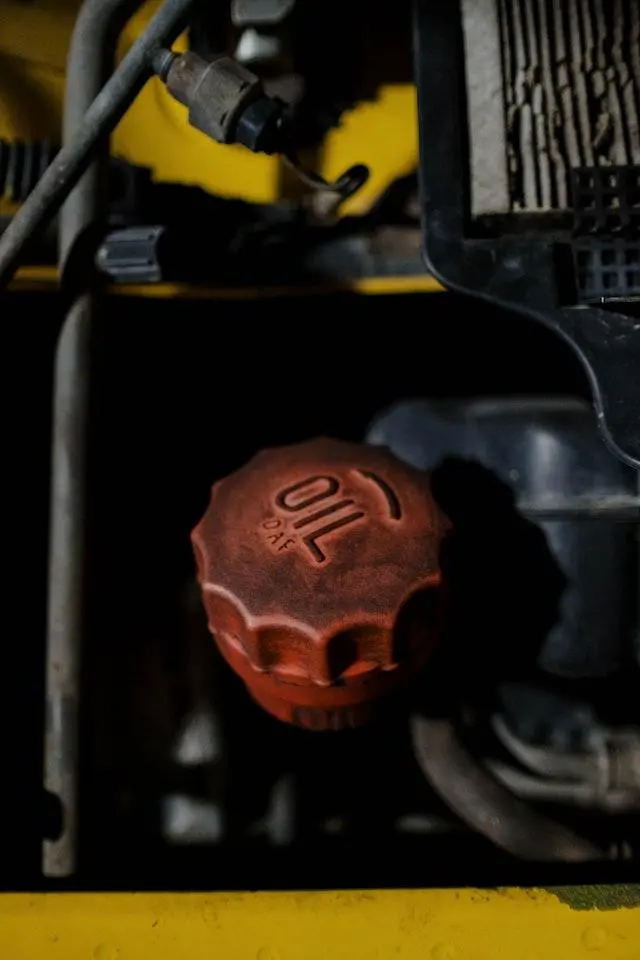Petrol and Diesel Engine Oil Explained
Published Date: 30th Mar 2023
New Car Engine Oil Explained
 Car engines need oil to operate smoothly, and it’s important to use the right kind of oil for your car. But how do you select the right oil for your petrol or diesel car?
Car engines need oil to operate smoothly, and it’s important to use the right kind of oil for your car. But how do you select the right oil for your petrol or diesel car?
Firstly, check your car’s owner's manual or ask at your local Halfords or Car service centre for advice on which oil is best for your car. You can also use online tools that can help you find out what oil is right for your car. However, you should cross-check this information with another source, as these tools aren’t always accurate.
It’s also important to regularly check your car’s oil level via the dipstick in case it needs topping up between changes. If you’re unsure how to check the oil level, the car’s handbook should include instructions. As a general rule, wait a few minutes to allow engine oil to return to the bottom of the engine after running.
When selecting engine oil, it’s important to get the correct grade. The label will show a number of digits, such as 10W-40 or 5W-30. These numbers refer to the oil's viscosity, or ‘thickness’. The lower the first number, the better the oil will operate at low temperatures – hence the ‘W’ digit denotes winter. The lower the second number, the better it’ll operate at higher temperatures.
To complicate matters further, there are various engine oil standards, but the ACEA numbers on each oil container are the most relevant. European and many Asian carmakers generally use different specifications for petrol and diesel engines.
CHECK OUT OUR LATEST NEW CAR DEALS HERE
Synthetic oils are required for some modern engines, which contain fewer impurities. There are two main types of synthetic oil: fully synthetic and semi-synthetic. Fully synthetic oils offer the highest performance for modern engines. Semi-synthetic oils contain a mix of synthetic and mineral oil. Synthetic oils are usually more expensive than standard oil, but that extra cost can be offset by the lower frequency at which they need to be changed.
Some clear indicators that your car needs an oil change include: dark and dirty oil, loud engine noise and knocking, oily smells in the cabin, and the oil change or check engine light is on. Long-life oils, usually fully synthetic, can last for up to two years or 18,000 miles between changes.
In conclusion, using the right kind of oil for your car is essential to maintain the health of your engine. Regularly checking your oil level and changing it when necessary will help ensure your car runs smoothly and efficiently.
Consult your owner’s manual, dealership or online tools to find out the right oil for your car. Remember to check the oil’s viscosity, ACEA numbers and whether synthetic oil is required.
Petrol Engine Oil:
 Conventional Oil (SAE 5W-30): Conventional oil is a mineral-based oil that has been used in cars for decades. It is suitable for most everyday cars and works well in moderate temperatures. However, it may not perform as well as synthetic oils.
Conventional Oil (SAE 5W-30): Conventional oil is a mineral-based oil that has been used in cars for decades. It is suitable for most everyday cars and works well in moderate temperatures. However, it may not perform as well as synthetic oils.- Synthetic Blend Oil (SAE 5W-30): A combination of conventional and synthetic oils, synthetic blend oil offers better performance than conventional oil at a slightly higher cost. It is a good option for cars that see a lot of stop-and-go traffic or frequent short trips.
- Full Synthetic Oil (SAE 0W-20 or 5W-30): Made entirely from chemical compounds, full synthetic oil offers superior performance and protection in extreme temperatures and high-stress driving conditions. It is typically more expensive than conventional and synthetic blend oils but can provide longer intervals between oil changes.
- High Mileage Oil (SAE 5W-30 or 10W-30): Specifically designed for cars with over 75,000 miles on the odometer, high mileage oil contains additives that help reduce oil burn-off and minimize engine wear. It is typically more expensive than conventional oil but can extend the life of an older engine.
- Racing Oil (SAE 10W-30 or 15W-50): Designed for high-performance engines that see a lot of stress and heat, racing oil provides maximum protection against wear and tear. It is typically very expensive and should only be used in engines that require it, such as those in race cars or high-performance sports cars.
Always consult your car's owner manual to ensure you use the correct oil type and grade for your specific make and model.
Diesel Engine Oil:
- 5W-30 (ACEA C3): This oil is suitable for many modern diesel engines and is often recommended for vehicles that require ACEA C3 or API SN specifications.
- 5W-40 (ACEA B4, C3): This oil is suitable for diesel engines that require ACEA B4 or C3 specifications and some petrol engines.
- 10W-30 (API CK-4): This oil is designed for newer diesel engines that require API CK-4 specification. It provides better protection against wear, oxidation, and deposits.
- 15W-40 (API CJ-4): This oil is suitable for older diesel engines that require API CJ-4 or lower specifications. It provides good protection against wear, deposits, and sludge.
- 0W-40 (ACEA C3): This oil suits high-performance diesel engines requiring ACEA C3 specifications. It provides excellent protection against wear, deposits, and oxidation.
- 10W-40 (ACEA A3/B4): This oil is suitable for diesel engines that require ACEA A3/B4 specifications and some petrol engines. It provides good protection against wear, deposits, and sludge.
- 5W-30 (API SN, CF): This oil is suitable for diesel engines that require API SN or CF specifications. It provides good fuel economy and low emissions.
- 5W-20 (API CK-4, FA-4): This oil suits newer diesel engines requiring API CK-4 or FA-4 specifications. It provides better fuel economy and low emissions.
As we have said, Referring to the vehicle owner's manual and the oil manufacturer's recommendations for choosing the correct oil for your diesel engine is very important.
Using the correct engine oil for your petrol or diesel vehicle is crucial for optimal engine performance and longevity. Several types and grades of oil are available, and selecting the right one can be daunting for many drivers. However, using the wrong type of oil can lead to engine damage, reduced fuel economy, and higher maintenance costs.
To select the correct oil for your petrol or diesel engine, it is essential to check the owner's manual or consult a qualified mechanic. The manual will specify the recommended oil grade, viscosity, and any specific requirements for your vehicle. Each type of engine oil has a unique code or reference that helps drivers select the correct one for their vehicle.
CHECK OUT THE LATEST NEW CAR NEWS FROM UK CAR DISCOUNT HERE
Regularly checking your oil level and replacing the oil filter is essential for maintaining your vehicle's engine health. Low oil levels can cause engine damage, and a clogged oil filter can reduce oil flow, leading to engine wear and tear. Regular oil changes can help prolong the life of your engine and improve fuel economy.
If you are a low mileage user and do lots of short journeys, we recommend changing the oil and filter every 12 months or 8,000 miles or as specified in your vehicle owner's manual.
In conclusion, selecting the correct engine oil for your petrol or diesel vehicle, regularly checking your oil level, and replacing your oil filter is crucial for optimal engine performance and longevity. Following the manufacturer's recommendations and seeking advice from a qualified mechanic if unsure is essential. You can save on maintenance costs and enjoy a smooth and efficient driving experience with proper preventative maintenance.
- Selecting the right oil for your car is crucial to maintain the health of your engine.
- Consult the owner's manual, dealership or online tools to find out the right oil for your car.
- It is important to regularly check your car’s oil level via the dipstick in case it needs topping up between changes.
- The engine oil's label shows the oil's viscosity, which is indicated by two numbers. The lower the first number, the better the oil will operate at low temperatures, and the lower the second number, the better it’ll operate at higher temperatures.
- Synthetic oils are required for modern engines that contain fewer impurities. Fully synthetic oils offer the highest performance for modern engines, while semi-synthetic oils contain a mix of synthetic and mineral oil.
- Clear indicators that your car needs an oil change include dark and dirty oil, loud engine noise and knocking, oily smells in the cabin, and the oil change or check engine light is on.
- For petrol car oils, the options include conventional oil, synthetic blend oil, full synthetic oil, high mileage oil, and racing oil, and it is important to use the correct type and grade as specified in the owner's manual.
- Diesel car oil options include 5W-30, 5W-40, 10W-30, 15W-40, 0W-40, 10W-40, and 5W-20, with different specifications, and it is important to use the correct oil type and grade as specified in the owner's manual.
UK Car Discount can help you find a brand-new vehicle that best meets your needs if you're in the market for a new car. Our team of experts can advise you in detail on your chosen vehicle's standard equipment and optional extras so that you can make an informed decision. Contact us today om 0161 946 3500 to learn more about how we can help you buy your next car.
